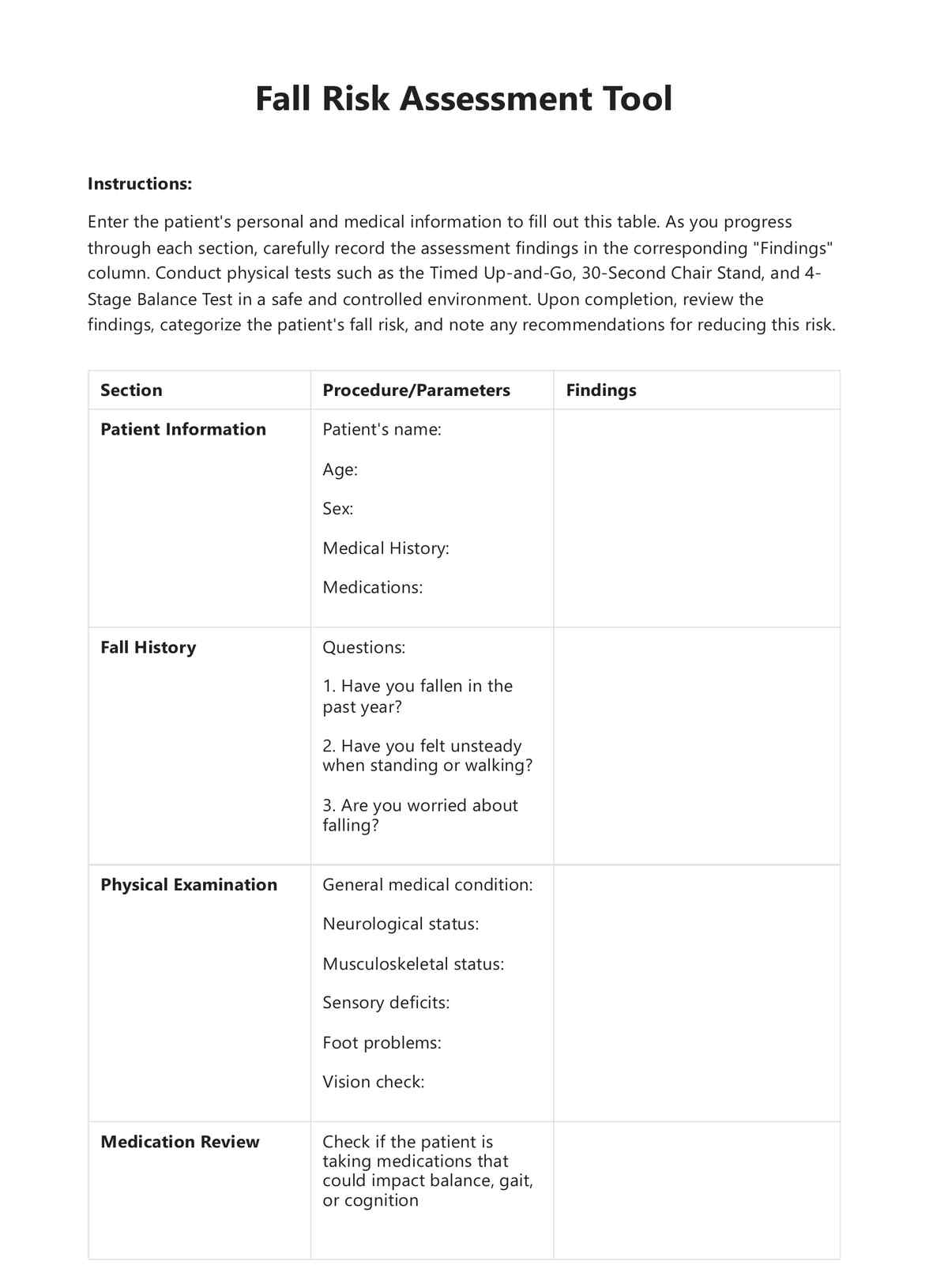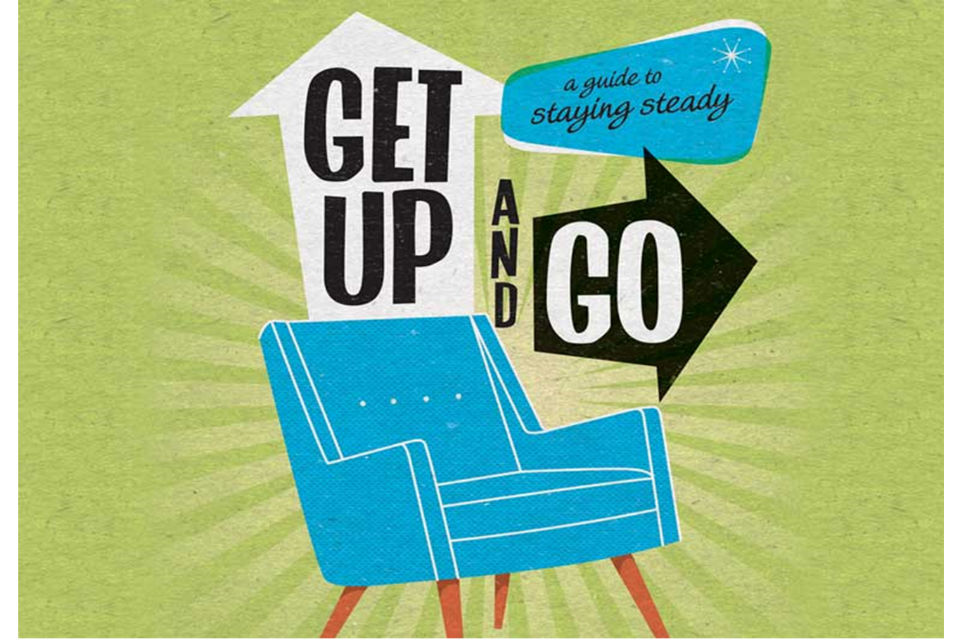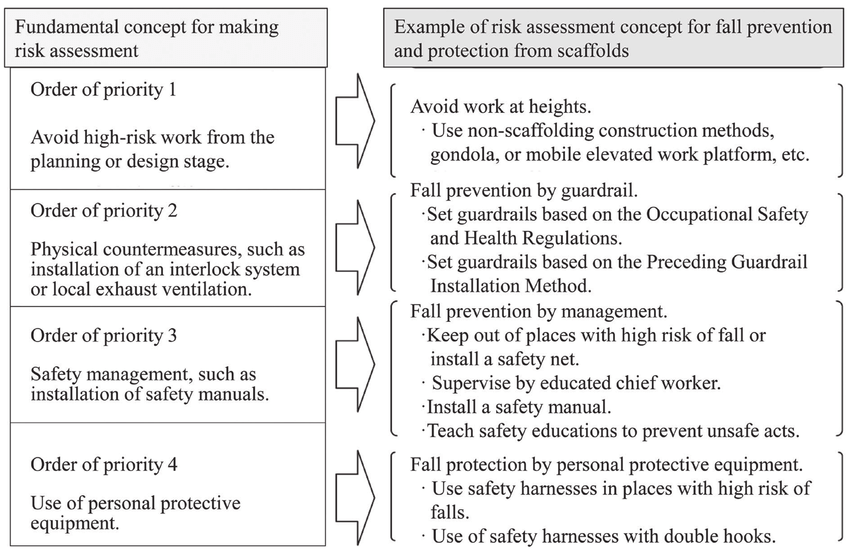The Best Strategy To Use For Dementia Fall Risk
The Best Strategy To Use For Dementia Fall Risk
Blog Article
A Biased View of Dementia Fall Risk
Table of ContentsWhat Does Dementia Fall Risk Mean?What Does Dementia Fall Risk Mean?Our Dementia Fall Risk PDFsSome Known Details About Dementia Fall Risk Some Known Questions About Dementia Fall Risk.
Ensure that there is an assigned location in your medical charting system where personnel can document/reference scores and document relevant notes related to drop avoidance. The Johns Hopkins Fall Danger Assessment Tool is one of several devices your team can make use of to assist protect against unfavorable medical occasions.Individual falls in hospitals prevail and devastating negative occasions that linger regardless of years of effort to decrease them. Improving interaction throughout the examining registered nurse, care group, individual, and client's most involved loved ones may strengthen autumn prevention efforts. A team at Brigham and Women's Hospital in Boston, Massachusetts, looked for to establish a standard fall avoidance program that focused around improved communication and patient and family interaction.

The advancement group highlighted that successful execution depends on person and team buy-in, assimilation of the program right into existing workflows, and fidelity to program processes. The group noted that they are coming to grips with just how to make sure continuity in program execution throughout durations of dilemma. During the COVID-19 pandemic, for instance, a boost in inpatient drops was connected with constraints in client engagement together with limitations on visitation.
Our Dementia Fall Risk Diaries
These incidents are usually taken into consideration preventable. To execute the treatment, companies require the following: Accessibility to Autumn TIPS resources Loss TIPS training and retraining for nursing and non-nursing staff, consisting of brand-new nurses Nursing operations that enable person and household engagement to carry out the drops assessment, ensure use of the avoidance plan, and conduct patient-level audits.
The results can be highly destructive, usually speeding up client decline and creating longer health center remains. One research estimated stays enhanced an additional 12 in-patient days after a client autumn. The Autumn TIPS Program is based on appealing patients and their family/loved ones across 3 main processes: evaluation, customized preventative interventions, and bookkeeping to ensure that patients are engaged in the three-step fall prevention procedure.
The client analysis is based upon the Morse Fall Scale, which is a confirmed autumn risk assessment tool for in-patient hospital setups. The range consists of the 6 most common reasons people in health centers fall: the individual autumn history, high-risk conditions (including polypharmacy), use of IVs and various other outside gadgets, mental status, gait, and mobility.
Each threat factor relate to one or even more actionable evidence-based interventions. The nurse creates a plan that includes the interventions and shows up to the care team, individual, and family members on a laminated poster or printed visual help. Nurses establish the strategy while meeting the person and the client's household.
4 Easy Facts About Dementia Fall Risk Described
The poster works as an interaction tool with other members of the patient's care team. Dementia Fall Risk. The audit component of the program includes examining the person's understanding of their danger elements and avoidance strategy at the system and hospital levels. Nurse champions conduct at the very least 5 specific meetings a month with people and their families to check for understanding of the autumn avoidance strategy

A projected 30% of these drops result in injuries, which can vary in extent. Unlike other negative occasions that call for a standardized clinical response, fall prevention depends extremely on the demands of the individual. Including the input of people who recognize the individual best enables greater modification. This technique has actually confirmed to be extra efficient than loss avoidance programs that are based largely on the production of a risk score and/or are not personalized.
Dementia Fall Risk - An Overview

Based on bookkeeping results, one site had 86% conformity and 2 websites had more than 95% compliance. A cost-benefit analysis of the Autumn suggestions program in eight medical facilities approximated that the program expense $0.88 per person to implement and caused cost savings of $8,500 per 1000 patient-days in straight costs associated with the prevention of 567 tips over 3 years and 8 months.
According to the advancement team, organizations thinking about applying the program ought to perform a readiness evaluation and falls avoidance voids evaluation. 8 Furthermore, companies need to make sure the required infrastructure and process Home Page for execution and create an execution plan. If one exists, the organization's Loss Avoidance Job Pressure go to this web-site should be included in preparation.
7 Easy Facts About Dementia Fall Risk Described
To begin, organizations should ensure completion of training components by registered nurses and nursing assistants - Dementia Fall Risk. Medical facility staff need to evaluate, based upon the demands of a hospital, whether to use a digital health record hard copy or paper version of the fall prevention strategy. Carrying out teams ought to recruit and educate nurse champions and develop procedures for bookkeeping and reporting on autumn information
Personnel require to be associated with the process of revamping the process to engage patients and household in the evaluation and prevention plan procedure. Solution must be in place to make sure that systems can understand why a loss happened and remediate the reason. More especially, registered nurses must have networks to offer recurring responses to both team and unit leadership so they can readjust and boost fall avoidance workflows and interact systemic issues.
Report this page